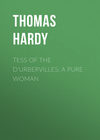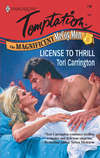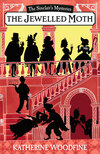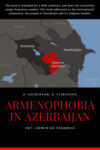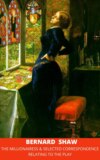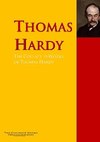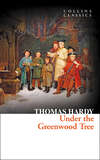Kitabı oku: «Tess of the d'Urbervilles: A Pure Woman», sayfa 26
XLVIII
In the afternoon the farmer made it known that the rick was to be finished that night, since there was a moon by which they could see to work, and the man with the engine was engaged for another farm on the morrow. Hence the twanging and humming and rustling proceeded with even less intermission than usual.
It was not till "nammet" – time, about three o-clock, that Tess raised her eyes and gave a momentary glance round. She felt but little surprise at seeing that Alec d'Urberville had come back, and was standing under the hedge by the gate. He had seen her lift her eyes, and waved his hand urbanely to her, while he blew her a kiss. It meant that their quarrel was over. Tess looked down again, and carefully abstained from gazing in that direction.
Thus the afternoon dragged on. The wheat-rick shrank lower, and the straw-rick grew higher, and the corn-sacks were carted away. At six o'clock the wheat-rick was about shoulder-high from the ground. But the unthreshed sheaves remaining untouched seemed countless still, notwithstanding the enormous numbers that had been gulped down by the insatiable swallower, fed by the man and Tess, through whose two young hands the greater part of them had passed. And the immense stack of straw where in the morning there had been nothing, appeared as the faeces of the same buzzing red glutton. From the west sky a wrathful shine – all that wild March could afford in the way of sunset – had burst forth after the cloudy day, flooding the tired and sticky faces of the threshers, and dyeing them with a coppery light, as also the flapping garments of the women, which clung to them like dull flames.
A panting ache ran through the rick. The man who fed was weary, and Tess could see that the red nape of his neck was encrusted with dirt and husks. She still stood at her post, her flushed and perspiring face coated with the corndust, and her white bonnet embrowned by it. She was the only woman whose place was upon the machine so as to be shaken bodily by its spinning, and the decrease of the stack now separated her from Marian and Izz, and prevented their changing duties with her as they had done. The incessant quivering, in which every fibre of her frame participated, had thrown her into a stupefied reverie in which her arms worked on independently of her consciousness. She hardly knew where she was, and did not hear Izz Huett tell her from below that her hair was tumbling down.
By degrees the freshest among them began to grow cadaverous and saucer-eyed. Whenever Tess lifted her head she beheld always the great upgrown straw-stack, with the men in shirt-sleeves upon it, against the gray north sky; in front of it the long red elevator like a Jacob's ladder, on which a perpetual stream of threshed straw ascended, a yellow river running uphill, and spouting out on the top of the rick.
She knew that Alec d'Urberville was still on the scene, observing her from some point or other, though she could not say where. There was an excuse for his remaining, for when the threshed rick drew near its final sheaves a little ratting was always done, and men unconnected with the threshing sometimes dropped in for that performance – sporting characters of all descriptions, gents with terriers and facetious pipes, roughs with sticks and stones.
But there was another hour's work before the layer of live rats at the base of the stack would be reached; and as the evening light in the direction of the Giant's Hill by Abbot's-Cernel dissolved away, the white-faced moon of the season arose from the horizon that lay towards Middleton Abbey and Shottsford on the other side. For the last hour or two Marian had felt uneasy about Tess, whom she could not get near enough to speak to, the other women having kept up their strength by drinking ale, and Tess having done without it through traditionary dread, owing to its results at her home in childhood. But Tess still kept going: if she could not fill her part she would have to leave; and this contingency, which she would have regarded with equanimity and even with relief a month or two earlier, had become a terror since d'Urberville had begun to hover round her.
The sheaf-pitchers and feeders had now worked the rick so low that people on the ground could talk to them. To Tess's surprise Farmer Groby came up on the machine to her, and said that if she desired to join her friend he did not wish her to keep on any longer, and would send somebody else to take her place. The "friend" was d'Urberville, she knew, and also that this concession had been granted in obedience to the request of that friend, or enemy. She shook her head and toiled on.
The time for the rat-catching arrived at last, and the hunt began. The creatures had crept downwards with the subsidence of the rick till they were all together at the bottom, and being now uncovered from their last refuge, they ran across the open ground in all directions, a loud shriek from the by-this-time half-tipsy Marian informing her companions that one of the rats had invaded her person – a terror which the rest of the women had guarded against by various schemes of skirt-tucking and self-elevation. The rat was at last dislodged, and, amid the barking of dogs, masculine shouts, feminine screams, oaths, stampings, and confusion as of Pandemonium, Tess untied her last sheaf; the drum slowed, the whizzing ceased, and she stepped from the machine to the ground.
Her lover, who had only looked on at the rat-catching, was promptly at her side.
"What – after all – my insulting slap, too!" said she in an underbreath. She was so utterly exhausted that she had not strength to speak louder.
"I should indeed be foolish to feel offended at anything you say or do," he answered, in the seductive voice of the Trantridge time. "How the little limbs tremble! You are as weak as a bled calf, you know you are; and yet you need have done nothing since I arrived. How could you be so obstinate? However, I have told the farmer that he has no right to employ women at steam-threshing. It is not proper work for them; and on all the better class of farms it has been given up, as he knows very well. I will walk with you as far as your home."
"O yes," she answered with a jaded gait. "Walk wi' me if you will! I do bear in mind that you came to marry me before you knew o' my state. Perhaps – perhaps you are a little better and kinder than I have been thinking you were. Whatever is meant as kindness I am grateful for; whatever is meant in any other way I am angered at. I cannot sense your meaning sometimes."
"If I cannot legitimize our former relations at least I can assist you. And I will do it with much more regard for your feelings than I formerly showed. My religious mania, or whatever it was, is over. But I retain a little good nature; I hope I do. Now, Tess, by all that's tender and strong between man and woman, trust me! I have enough and more than enough to put you out of anxiety, both for yourself and your parents and sisters. I can make them all comfortable if you will only show confidence in me."
"Have you seen 'em lately?" she quickly inquired.
"Yes. They didn't know where you were. It was only by chance that I found you here."
The cold moon looked aslant upon Tess's fagged face between the twigs of the garden-hedge as she paused outside the cottage which was her temporary home, d'Urberville pausing beside her.
"Don't mention my little brothers and sisters – don't make me break down quite!" she said. "If you want to help them – God knows they need it – do it without telling me. But no, no!" she cried. "I will take nothing from you, either for them or for me!"
He did not accompany her further, since, as she lived with the household, all was public indoors. No sooner had she herself entered, laved herself in a washing-tub, and shared supper with the family than she fell into thought, and withdrawing to the table under the wall, by the light of her own little lamp wrote in a passionate mood —
My own Husband, —
Let me call you so – I must – even if it makes you angry to think of such an unworthy wife as I. I must cry to you in my trouble – I have no one else! I am so exposed to temptation, Angel. I fear to say who it is, and I do not like to write about it at all. But I cling to you in a way you cannot think! Can you not come to me now, at once, before anything terrible happens? O, I know you cannot, because you are so far away! I think I must die if you do not come soon, or tell me to come to you. The punishment you have measured out to me is deserved – I do know that – well deserved – and you are right and just to be angry with me. But, Angel, please, please, not to be just – only a little kind to me, even if I do not deserve it, and come to me! If you would come, I could die in your arms! I would be well content to do that if so be you had forgiven me!
Angel, I live entirely for you. I love you too much to blame you for going away, and I know it was necessary you should find a farm. Do not think I shall say a word of sting or bitterness. Only come back to me. I am desolate without you, my darling, O, so desolate! I do not mind having to work: but if you will send me one little line, and say, "I am coming soon," I will bide on, Angel – O, so cheerfully!
It has been so much my religion ever since we were married to be faithful to you in every thought and look, that even when a man speaks a compliment to me before I am aware, it seems wronging you. Have you never felt one little bit of what you used to feel when we were at the dairy? If you have, how can you keep away from me? I am the same women, Angel, as you fell in love with; yes, the very same! – not the one you disliked but never saw. What was the past to me as soon as I met you? It was a dead thing altogether. I became another woman, filled full of new life from you. How could I be the early one? Why do you not see this? Dear, if you would only be a little more conceited, and believe in yourself so far as to see that you were strong enough to work this change in me, you would perhaps be in a mind to come to me, your poor wife.
How silly I was in my happiness when I thought I could trust you always to love me! I ought to have known that such as that was not for poor me. But I am sick at heart, not only for old times, but for the present. Think – think how it do hurt my heart not to see you ever – ever! Ah, if I could only make your dear heart ache one little minute of each day as mine does every day and all day long, it might lead you to show pity to your poor lonely one.
People still say that I am rather pretty, Angel (handsome is the word they use, since I wish to be truthful). Perhaps I am what they say. But I do not value my good looks; I only like to have them because they belong to you, my dear, and that there may be at least one thing about me worth your having. So much have I felt this, that when I met with annoyance on account of the same, I tied up my face in a bandage as long as people would believe in it. O Angel, I tell you all this not from vanity – you will certainly know I do not – but only that you may come to me!
If you really cannot come to me, will you let me come to you? I am, as I say, worried, pressed to do what I will not do. It cannot be that I shall yield one inch, yet I am in terror as to what an accident might lead to, and I so defenceless on account of my first error. I cannot say more about this – it makes me too miserable. But if I break down by falling into some fearful snare, my last state will be worse than my first. O God, I cannot think of it! Let me come at once, or at once come to me!
I would be content, ay, glad, to live with you as your servant, if I may not as your wife; so that I could only be near you, and get glimpses of you, and think of you as mine.
The daylight has nothing to show me, since you are not here, and I don't like to see the rooks and starlings in the field, because I grieve and grieve to miss you who used to see them with me. I long for only one thing in heaven or earth or under the earth, to meet you, my own dear! Come to me – come to me, and save me from what threatens me! —
Your faithful heartbroken
Tess
XLIX
The appeal duly found its way to the breakfast-table of the quiet Vicarage to the westward, in that valley where the air is so soft and the soil so rich that the effort of growth requires but superficial aid by comparison with the tillage at Flintcomb-Ash, and where to Tess the human world seemed so different (though it was much the same). It was purely for security that she had been requested by Angel to send her communications through his father, whom he kept pretty well informed of his changing addresses in the country he had gone to exploit for himself with a heavy heart.
"Now," said old Mr Clare to his wife, when he had read the envelope, "if Angel proposes leaving Rio for a visit home at the end of next month, as he told us that he hoped to do, I think this may hasten his plans; for I believe it to be from his wife." He breathed deeply at the thought of her; and the letter was redirected to be promptly sent on to Angel.
"Dear fellow, I hope he will get home safely," murmured Mrs Clare. "To my dying day I shall feel that he has been ill-used. You should have sent him to Cambridge in spite of his want of faith and given him the same chance as the other boys had. He would have grown out of it under proper influence, and perhaps would have taken Orders after all. Church or no Church, it would have been fairer to him."
This was the only wail with which Mrs Clare ever disturbed her husband's peace in respect to their sons. And she did not vent this often; for she was as considerate as she was devout, and knew that his mind too was troubled by doubts as to his justice in this matter. Only too often had she heard him lying awake at night, stifling sighs for Angel with prayers. But the uncompromising Evangelical did not even now hold that he would have been justified in giving his son, an unbeliever, the same academic advantages that he had given to the two others, when it was possible, if not probable, that those very advantages might have been used to decry the doctrines which he had made it his life's mission and desire to propagate, and the mission of his ordained sons likewise. To put with one hand a pedestal under the feet of the two faithful ones, and with the other to exalt the unfaithful by the same artificial means, he deemed to be alike inconsistent with his convictions, his position, and his hopes. Nevertheless, he loved his misnamed Angel, and in secret mourned over this treatment of him as Abraham might have mourned over the doomed Isaac while they went up the hill together. His silent self-generated regrets were far bitterer than the reproaches which his wife rendered audible.
They blamed themselves for this unlucky marriage. If Angel had never been destined for a farmer he would never have been thrown with agricultural girls. They did not distinctly know what had separated him and his wife, nor the date on which the separation had taken place. At first they had supposed it must be something of the nature of a serious aversion. But in his later letters he occasionally alluded to the intention of coming home to fetch her; from which expressions they hoped the division might not owe its origin to anything so hopelessly permanent as that. He had told them that she was with her relatives, and in their doubts they had decided not to intrude into a situation which they knew no way of bettering.
The eyes for which Tess's letter was intended were gazing at this time on a limitless expanse of country from the back of a mule which was bearing him from the interior of the South-American Continent towards the coast. His experiences of this strange land had been sad. The severe illness from which he had suffered shortly after his arrival had never wholly left him, and he had by degrees almost decided to relinquish his hope of farming here, though, as long as the bare possibility existed of his remaining, he kept this change of view a secret from his parents.
The crowds of agricultural labourers who had come out to the country in his wake, dazzled by representations of easy independence, had suffered, died, and wasted away. He would see mothers from English farms trudging along with their infants in their arms, when the child would be stricken with fever and would die; the mother would pause to dig a hole in the loose earth with her bare hands, would bury the babe therein with the same natural grave-tools, shed one tear, and again trudge on.
Angel's original intention had not been emigration to Brazil but a northern or eastern farm in his own country. He had come to this place in a fit of desperation, the Brazil movement among the English agriculturists having by chance coincided with his desire to escape from his past existence.
During this time of absence he had mentally aged a dozen years. What arrested him now as of value in life was less its beauty than its pathos. Having long discredited the old systems of mysticism, he now began to discredit the old appraisements of morality. He thought they wanted readjusting. Who was the moral man? Still more pertinently, who was the moral woman? The beauty or ugliness of a character lay not only in its achievements, but in its aims and impulses; its true history lay, not among things done, but among things willed.
How, then, about Tess?
Viewing her in these lights, a regret for his hasty judgement began to oppress him. Did he reject her eternally, or did he not? He could no longer say that he would always reject her, and not to say that was in spirit to accept her now.
This growing fondness for her memory coincided in point of time with her residence at Flintcomb-Ash, but it was before she had felt herself at liberty to trouble him with a word about her circumstances or her feelings. He was greatly perplexed; and in his perplexity as to her motives in withholding intelligence, he did not inquire. Thus her silence of docility was misinterpreted. How much it really said if he had understood! – that she adhered with literal exactness to orders which he had given and forgotten; that despite her natural fearlessness she asserted no rights, admitted his judgement to be in every respect the true one, and bent her head dumbly thereto.
In the before-mentioned journey by mules through the interior of the country, another man rode beside him. Angel's companion was also an Englishman, bent on the same errand, though he came from another part of the island. They were both in a state of mental depression, and they spoke of home affairs. Confidence begat confidence. With that curious tendency evinced by men, more especially when in distant lands, to entrust to strangers details of their lives which they would on no account mention to friends, Angel admitted to this man as they rode along the sorrowful facts of his marriage.
The stranger had sojourned in many more lands and among many more peoples than Angel; to his cosmopolitan mind such deviations from the social norm, so immense to domesticity, were no more than are the irregularities of vale and mountain-chain to the whole terrestrial curve. He viewed the matter in quite a different light from Angel; thought that what Tess had been was of no importance beside what she would be, and plainly told Clare that he was wrong in coming away from her.
The next day they were drenched in a thunder-storm. Angel's companion was struck down with fever, and died by the week's end. Clare waited a few hours to bury him, and then went on his way.
The cursory remarks of the large-minded stranger, of whom he knew absolutely nothing beyond a commonplace name, were sublimed by his death, and influenced Clare more than all the reasoned ethics of the philosophers. His own parochialism made him ashamed by its contrast. His inconsistencies rushed upon him in a flood. He had persistently elevated Hellenic Paganism at the expense of Christianity; yet in that civilization an illegal surrender was not certain disesteem. Surely then he might have regarded that abhorrence of the un-intact state, which he had inherited with the creed of mysticism, as at least open to correction when the result was due to treachery. A remorse struck into him. The words of Izz Huett, never quite stilled in his memory, came back to him. He had asked Izz if she loved him, and she had replied in the affirmative. Did she love him more than Tess did? No, she had replied; Tess would lay down her life for him, and she herself could do no more.
He thought of Tess as she had appeared on the day of the wedding. How her eyes had lingered upon him; how she had hung upon his words as if they were a god's! And during the terrible evening over the hearth, when her simple soul uncovered itself to his, how pitiful her face had looked by the rays of the fire, in her inability to realize that his love and protection could possibly be withdrawn.
Thus from being her critic he grew to be her advocate. Cynical things he had uttered to himself about her; but no man can be always a cynic and live; and he withdrew them. The mistake of expressing them had arisen from his allowing himself to be influenced by general principles to the disregard of the particular instance.
But the reasoning is somewhat musty; lovers and husbands have gone over the ground before to-day. Clare had been harsh towards her; there is no doubt of it. Men are too often harsh with women they love or have loved; women with men. And yet these harshnesses are tenderness itself when compared with the universal harshness out of which they grow; the harshness of the position towards the temperament, of the means towards the aims, of to-day towards yesterday, of hereafter towards to-day.
The historic interest of her family – that masterful line of d'Urbervilles – whom he had despised as a spent force, touched his sentiments now. Why had he not known the difference between the political value and the imaginative value of these things? In the latter aspect her d'Urberville descent was a fact of great dimensions; worthless to economics, it was a most useful ingredient to the dreamer, to the moralizer on declines and falls. It was a fact that would soon be forgotten – that bit of distinction in poor Tess's blood and name, and oblivion would fall upon her hereditary link with the marble monuments and leaded skeletons at Kingsbere. So does Time ruthlessly destroy his own romances. In recalling her face again and again, he thought now that he could see therein a flash of the dignity which must have graced her grand-dames; and the vision sent that aura through his veins which he had formerly felt, and which left behind it a sense of sickness.
Despite her not-inviolate past, what still abode in such a woman as Tess outvalued the freshness of her fellows. Was not the gleaning of the grapes of Ephraim better than the vintage of Abiezer?
So spoke love renascent, preparing the way for Tess's devoted outpouring, which was then just being forwarded to him by his father; though owing to his distance inland it was to be a long time in reaching him.
Meanwhile the writer's expectation that Angel would come in response to the entreaty was alternately great and small. What lessened it was that the facts of her life which had led to the parting had not changed – could never change; and that, if her presence had not attenuated them, her absence could not. Nevertheless she addressed her mind to the tender question of what she could do to please him best if he should arrive. Sighs were expended on the wish that she had taken more notice of the tunes he played on his harp, that she had inquired more curiously of him which were his favourite ballads among those the country-girls sang. She indirectly inquired of Amby Seedling, who had followed Izz from Talbothays, and by chance Amby remembered that, amongst the snatches of melody in which they had indulged at the dairyman's, to induce the cows to let down their milk, Clare had seemed to like "Cupid's Gardens", "I have parks, I have hounds", and "The break o' the day"; and had seemed not to care for "The Tailor's Breeches" and "Such a beauty I did grow", excellent ditties as they were.
To perfect the ballads was now her whimsical desire. She practised them privately at odd moments, especially "The break o' the day":
Arise, arise, arise!
And pick your love a posy,
All o' the sweetest flowers
That in the garden grow.
The turtle doves and sma' birds
In every bough a-building,
So early in the May-time
At the break o' the day!
It would have melted the heart of a stone to hear her singing these ditties whenever she worked apart from the rest of the girls in this cold dry time; the tears running down her cheeks all the while at the thought that perhaps he would not, after all, come to hear her, and the simple silly words of the songs resounding in painful mockery of the aching heart of the singer.
Tess was so wrapt up in this fanciful dream that she seemed not to know how the season was advancing; that the days had lengthened, that Lady-Day was at hand, and would soon be followed by Old Lady-Day, the end of her term here.
But before the quarter-day had quite come, something happened which made Tess think of far different matters. She was at her lodging as usual one evening, sitting in the downstairs room with the rest of the family, when somebody knocked at the door and inquired for Tess. Through the doorway she saw against the declining light a figure with the height of a woman and the breadth of a child, a tall, thin, girlish creature whom she did not recognize in the twilight till the girl said "Tess!"
"What – is it 'Liza-Lu?" asked Tess, in startled accents. Her sister, whom a little over a year ago she had left at home as a child, had sprung up by a sudden shoot to a form of this presentation, of which as yet Lu seemed herself scarce able to understand the meaning. Her thin legs, visible below her once-long frock, now short by her growing, and her uncomfortable hands and arms revealed her youth and inexperience.
"Yes, I have been traipsing about all day, Tess," said Lu, with unemotional gravity, "a-trying to find 'ee; and I'm very tired."
"What is the matter at home?"
"Mother is took very bad, and the doctor says she's dying, and as father is not very well neither, and says 'tis wrong for a man of such a high family as his to slave and drave at common labouring work, we don't know what to do."
Tess stood in reverie a long time before she thought of asking 'Liza-Lu to come in and sit down. When she had done so, and 'Liza-Lu was having some tea, she came to a decision. It was imperative that she should go home. Her agreement did not end till Old Lady-Day, the sixth of April, but as the interval thereto was not a long one she resolved to run the risk of starting at once.
To go that night would be a gain of twelve-hours; but her sister was too tired to undertake such a distance till the morrow. Tess ran down to where Marian and Izz lived, informed them of what had happened, and begged them to make the best of her case to the farmer. Returning, she got Lu a supper, and after that, having tucked the younger into her own bed, packed up as many of her belongings as would go into a withy basket, and started, directing Lu to follow her next morning.
